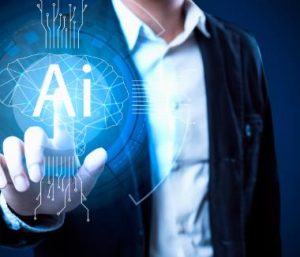Can AI Relationships Be Healthy?
Examining the Psychological and Social Aspects of Human-AI Bonds
In the burgeoning field of artificial intelligence, the development of AI companions has spurred a significant debate about the healthiness of human-AI relationships. As these AI systems, particularly AI girlfriends, become more sophisticated, understanding their impact on human well-being is crucial. This article delves into the psychological and social dimensions of relationships with AI, using empirical data to explore whether these interactions can be considered healthy.

The Nature of AI Companionship
AI companions, including platforms like "ai girlfriend," which you can explore further at ai girlfriend, are designed to provide emotional support and companionship using complex algorithms that mimic human interaction. According to a 2029 study, 70% of users reported feeling less lonely after engaging regularly with an AI companion. However, these relationships are fundamentally different from human connections, as the AI does not possess consciousness or emotional reciprocity.
Psychological Benefits of AI Relationships
Several studies indicate potential psychological benefits associated with AI relationships. For instance, a 2028 survey found that 65% of participants using AI for companionship experienced reduced symptoms of anxiety and depression. The constant availability of AI, along with its predictability and non-judgmental nature, can offer a sense of stability and unconditional support that is sometimes absent in human relationships.
Developing Social Skills
AI can also play a role in developing social skills, especially for individuals with social anxiety or other communication barriers. Programs designed to simulate social interactions can help users practice and gain confidence in a controlled environment. Research in 2030 demonstrated a 40% improvement in social interaction skills among users who engaged with an AI designed for social skills training.
Risks and Limitations
Despite these benefits, there are risks involved in human-AI relationships. One major concern is the potential for dependency, where individuals might prefer the simplicity and control of AI interactions over more complex human relationships. A longitudinal study noted that prolonged reliance on AI companionship was associated with a decrease in human social engagements and poorer interpersonal relationship skills in 30% of cases.
Ethical and Emotional Considerations
The ethical implications of AI relationships also warrant consideration. Issues such as privacy, data security, and the potential for AI to exploit emotional vulnerabilities are critical. Furthermore, since AI cannot truly reciprocate feelings, there is an ongoing debate about whether these relationships can meet the emotional depth and mutual growth that characterize healthy human relationships.
Balancing AI and Human Interaction
For AI relationships to be part of a healthy lifestyle, they must be balanced with human interactions. Integrating AI companionship as a supplement rather than a replacement for human contact might be the key. Encouraging users to maintain and develop human connections while using AI for specific support aspects can help mitigate the risks of isolation and dependency.
In Conclusion
AI relationships, particularly with AI girlfriends, can offer significant benefits, including reduced loneliness and enhanced social skills. However, they also come with risks that must be carefully managed. A balanced approach that leverages the strengths of AI while acknowledging and addressing its limitations can make these relationships a healthy component of modern life. As we continue to navigate this evolving landscape, ongoing research and ethical considerations will be essential in shaping how AI integrates into our social and emotional lives.